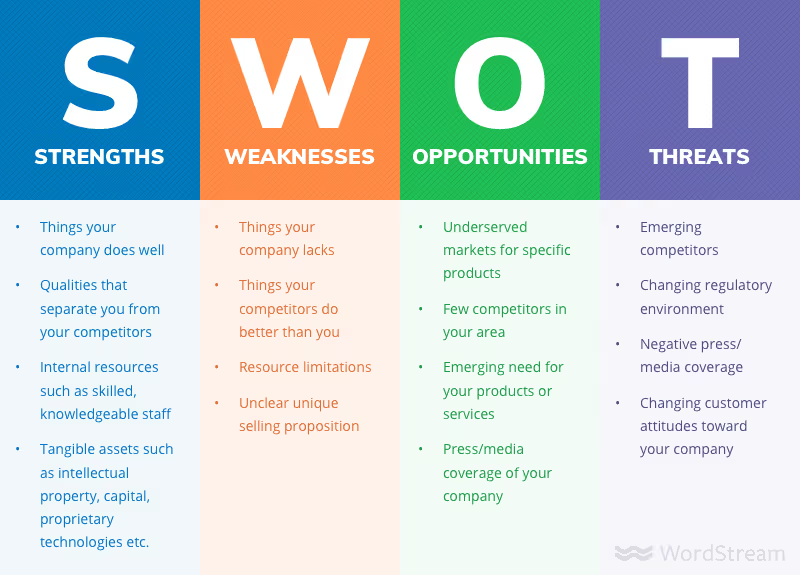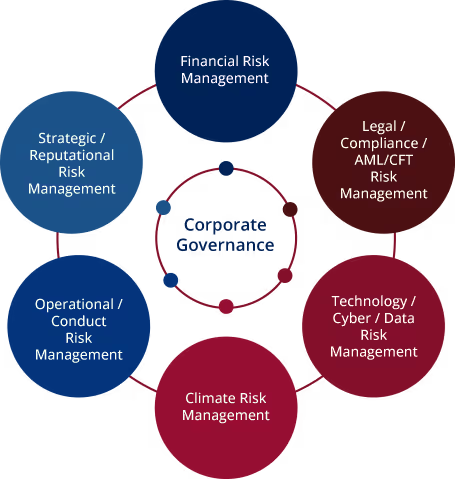Maximizing Startup Success: The Impact of Business Consulting
02/22/2025
Business Strategy
Navigating the startup landscape can be challenging—this guide explores how business consulting can provide the expertise and strategies needed to drive success and long-term growth.

Business consulting plays a crucial role in the trajectory of startup success. It provides startups with the expertise and insights needed to navigate the complex business landscape. Startups, often limited by resources and experience, benefit significantly from the strategic, marketing operations, and financial guidance offered by business consultants. The management consulting market size in the US is valued at approximately $329 billion. The market size grows at a GAGR of 7.4%, showing the rising importance of such services. From this post, you'll discover the importance of consulting services in fostering startup growth and sustainability in a competitive market. You'll also find what types of business consulting are available and learn the steps of business consulting.
.png)


Types of Business Consulting



Business consulting is a professional service provided by experts who advise organizations on various aspects of their business operations.
Business consulting encompasses various types, each targeting different aspects of a startup's operations. Understanding these types can help startups identify the specific consulting services they need to address their unique challenges and goals:
Strategy Consulting
This area involves developing high-level business strategies, market positioning, and setting long-term goals. It's about guiding companies in defining their direction and making key strategic decisions.
You can review the S.W.O.T. analysis, which is a part of startup marketing agency branding strategy data and marketing agency data management consulting, in the below infographic:

Operations Consulting
Focuses on improving operational efficiency and productivity. Consultants in this field work to optimize business processes and workflows, enhancing overall performance.
Financial Consulting
Deals with financial planning, budgeting, asset management, and developing investment strategies. It's crucial for businesses to manage their finances effectively, and financial consultants provide expertise in this area.
Startup Marketing Consulting
Concentrates on developing marketing strategies, branding, business structure development, market penetration, and industry expertise from past clients' startup consultants. This type of consulting helps businesses identify effective marketing channels and leverage market trends.
Human Resources Startup Consulting
Involves aspects like talent acquisition, training, and organizational culture. HR consultants help in shaping the workforce and organizational practices to align with business needs and objectives.
IT Consulting
Addresses the integration of technology in business operations. IT consultants advise on digital business transformation, software solutions, technology review, prototype development and technology implementation to enhance business capabilities.
Additionally, you should consider the potential need for financial technology consulting services for your startup.
A fintech consultant can help you align the newly created business model with the necessary tech capabilities and resources.
Fintech strategy from the best startup consulting firm is your advantage over competitors that rely on their own expertise and knowledge only. So don't hesitate to request external assistance from a trusted fintech startup consulting firm and investment fund.
Now, let's proceed with learning what benefits and advantages business consulting can offer to your startup.
Benefits and Advantages Business Consulting for Startups
Business consulting offers plenty of benefits and advantages to startups, crucial for their growth and competitive edge in the market. Here are some of them:
External Expertise and Experience
Business consulting offers startups access to a wealth of industry knowledge and best practices, drawing from years of experience across various sectors. Consultants bring insights from their work with diverse clients while providing strategic advice, proven strategies and a deep understanding of market dynamics.
This expertise helps startups avoid common pitfalls, accelerate their learning curve, and make informed decisions based on industry benchmarks and successful case studies.
Objective Perspective
Consultants provide an unbiased, third-party perspective on business strategies, which is vital for startups often clouded by internal biases. This objective viewpoint allows for a clear assessment of the business's strengths and weaknesses.
Consultants challenge assumptions and the status quo, leading to more balanced and comprehensive strategic decisions.
This objectivity is crucial in ensuring that decisions are based on facts and rational analysis rather than internal politics or emotional biases.
Resource Optimization
Consultants assist startups in efficiently allocating their limited resources to achieve maximum impact. They identify areas where resources can be best utilized for optimal results, ensuring that time, money, and manpower are not wasted on less productive activities.
This optimization is crucial for startups operating with constrained budgets, enabling them to focus on activities that offer the highest return on investment and contribute significantly to their growth.
Risk Mitigation
Consultants play a key role in identifying and addressing potential risks and challenges that startups may overlook. They conduct comprehensive risk assessments, considering market trends, regulatory environments sensitive business information, and internal vulnerabilities.
By proactively identifying risks, consultants help startups develop strategies to mitigate them, ensuring long-term sustainability and reducing the likelihood of unforeseen setbacks that could derail their progress.
One of the examples of risk mitigation strategy is shown in the image below:

Networking Opportunities
A consultant for a startup connects your business with a vast network of other industry professionals, experts, potential partners, and even investors.
These networking opportunities can be invaluable for startups looking to expand their business, enter new markets, or seek strategic partnerships. Access to a broad network can accelerate growth, open up new avenues for collaboration, get venture capital worlds and provide exposure to new ideas, technology reviews and trends in the industry.
Innovation and Creativity
Consultants encourage startups to think outside the box and adopt innovative and creative approaches. They bring fresh perspectives and challenge startups to reconsider their methods, products, or services.
This stimulation of creativity can lead to groundbreaking ideas, helping startups differentiate themselves in the market and stay ahead of the competition.
Innovation is often the key to unlocking new opportunities and driving sustainable growth in the fast-paced business world.
Steps of Startup Business Consulting Process












When you hire a business or startup consultant, the whole startup consulting or financial consulting process typically follows a structured approach involving several key steps to ensure effective and efficient guidance.
- Initial assessment: Understanding the startup's current situation and goals.
- Startup strategy development: Crafting tailored strategies based on the startup's needs.
- Implementation guidance: Assisting in the execution of the developed strategies.
- Performance monitoring: Tracking progress and measuring impact.
- Feedback and adjustments: Providing ongoing feedback and making necessary adjustments.
- Final evaluation: Assessing the overall success and identifying future steps.
This structured process ensures that startups receive comprehensive support throughout their journey to venture capital, enabling them to make informed decisions and achieve their objectives.
If you're looking for business consulting, you'll likely also be interested in tips on our blog on how to build your first branded ideas.
Digital Transformation Consulting
As startups go through the consulting process, one of the top areas that comes up as a priority is digital transformation. Digital transformation is not a competitive advantage; it’s a necessity.
Bringing digital into every part of the startup can change how it runs and delivers value to customers, efficiency, innovation and growth.
Why Digital Transformation for Startups
Digital transformation is vital for startups to stay relevant in today’s fast-moving business world. It means integrating digital into every part of the business, changing how it operates and delivers value to customers.
For startups, digital transformation can be more efficient, better customer experiences and innovation.
Key Technologies and Tools
Digital transformation uses many technologies and tools to streamline business and create new opportunities. Some of these are:
- Cloud Computing: Scalable and flexible IT resources, no physical infrastructure needed.
- Artificial Intelligence (AI) and Machine Learning (ML): Better decision-making and automation of routine tasks.
- Internet of Things (IoT): Connect devices and systems to get data and improve operations.
- Blockchain: Security and transparency in transactions.
- Big Data and Analytics: Insights into customer behavior and market trends.
How Consultants Help Startups Implement Digital Solutions
Digital transformation consultants help startups choose and implement the right technologies. They have expertise in:
- Current Digital Maturity Assessment: Review of current technologies and gap analysis.
- Strategic Planning: Digital transformation roadmap aligned to business goals.
- Implementation: Deployment of new technologies and integration with existing systems.
- Change Management: Organisational change and staff training for new technologies.
Case Studies of Digital Transformation in Startups
- FinTech Startup: Implemented AI-driven fraud detection system, reduced fraud by 30% in 6 months.
- Retail Startup: Used IoT for inventory management, 20% increase in operational efficiency.
- Healthcare Startup: Used cloud computing to create a telehealth platform, expanded service reach and patient satisfaction.
Growth Marketing for Startups
What is Growth Marketing and its Benefits
Growth marketing looks at the entire customer journey to attract, engage and retain customers through data driven and rapid experimentation.
Unlike traditional marketing which often focuses on top of the funnel activities, growth marketing looks at the full funnel to drive sustainable growth.
Tactics Used in Growth Marketing
- A/B Testing: Testing different versions of content or campaigns to see what works best with the audience.
- Customer Segmentation: Segmenting the target audience into demographics, behaviour or preferences to target marketing efforts.
- Performance Tracking: Continuously monitoring and analysing key performance indicators (KPIs) to optimise.
Examples of Growth Marketing Campaigns
- E-commerce Startup: Tested A/B on landing pages, 15% increase in conversion rates.
- SaaS Startup: Segmented customers to create personalised email campaigns, 25% increase in customer retention.
- Mobile App Startup: Used performance tracking to optimise ad spend, 20% reduction in customer acquisition cost.
How Consultants Help with Growth Marketing
Growth marketing consultants have expertise in:
- Growth Opportunity Identification: Market research and customer data analysis to identify growth areas.
- Strategy Development: Comprehensive marketing plans covering acquisition, engagement and retention.
- Execution and Optimisation: Implementation and data-driven optimisation.
Want to learn more about brand platforms, Brand Strategy and Brand Identity? Keep reading!
If you need help with your companies brand strategy and identity, contact us for a free custom quote.
Data Analytics in Startup Consulting

Data analytics has become a cornerstone for startup consulting firms, providing invaluable insights that drive informed decision-making.
In the competitive startup world, leveraging data analytics can be the difference between success and failure.
This section explores how business consulting agencies utilize data analytics to help early-stage startups navigate their growth journey, optimize business operations, and make strategic decisions that propel them forward.
Data analytics is a critical tool for all startup founders, teams, founders, and consultants, from understanding customer behavior to forecasting market trends.
Types of Data Analytics
- Descriptive Analytics: Historical data to understand what has happened.
- Diagnostic Analytics: Investigate the causes of past outcomes.
- Predictive Analytics: Statistical models to forecast future events.
- Prescriptive Analytics: Recommendations based on predictive data.
How Data Analytics Can Uncover Insights and Opportunities
Data analytics helps startups make informed decisions by providing insights into:
- Customer Behaviour: How customers interact with products or services.
- Market Trends: Emerging trends and market shifts.
- Operational Efficiency: Areas to improve in business processes.
Tools and Platforms Used in Data Analytics
- Google Analytics: Website and app performance tracking.
- Tableau: Interactive data visualisation.
- R and Python: Programming languages for statistical analysis and data manipulation.
- Hadoop: Framework for big data processing.
Examples of Data Analytics in Action
- E-commerce Startup: Used predictive analytics to forecast demand and reduced stockouts by 20%.
- Healthcare Startup: Used prescriptive analytics to improve patient treatment plans, 15% increase in treatment success rates.
- FinTech Startup: Used diagnostic analytics to identify and address customer churn, 10% reduction in churn.
People and Organisation
Building a strong team and organization is crucial for startup success. This section explores strategies for attracting and retaining top talent, building a strong organizational culture, and providing effective training and development programs.
HR consultants help startups create an environment that fosters growth, innovation, and employee satisfaction, positioning them for long-term success.
How to Attract and Retain Top Talent
- Employer Branding: Create a positive image to attract employees.
- Competitive Pay: Attractive salaries and benefits.
- Career Development: Growth and progression opportunities.
Building a Strong Organisation Culture
- Vision and Values: Define and communicate the company’s mission and values.
- Employee Engagement: Positive and inclusive work environment.
- Leadership Development: Train leaders to inspire and motivate teams.
Training and Development
- Onboarding: Comprehensive programs to get new hires up to speed quickly.
- Skill Development: Ongoing learning opportunities to upskill employees.
- Leadership Training: Programs to develop future leaders within the organisation.
How HR Consultants Shape the Workforce and Organisation
HR consultants help startups by:
- Talent Acquisition: Find and recruit the right people.
- Performance Management: Implement performance systems to evaluate and improve employee performance.
- Organisational Design: Structure the organisation to match business goals.
Customer Acquisition and Retention
Acquiring and retaining customers is critical for startup success. This section explores effective customer acquisition channels, retention strategies, and the role of CRM systems in managing customer relationships.
Consulting firms provide startups with the tools and strategies needed to attract and retain customers, ensuring long-term growth and profitability.
Customer Acquisition Channels
- Search Engine Optimisation (SEO): Get visible on search engines.
- Pay-Per-Click (PPC) Advertising: Drive traffic through paid ads.
- Social Media Marketing: Engage with potential customers on social media.
Customer Retention
- Loyalty Programs: Reward repeat customers with incentives.
- Personalised Communication: Tailor messages and offers to individual customers.
- Exceptional Customer Service: Build loyalty through great support.
How CRM Helps with Customer Relationships
Customer Relationship Management (CRM) systems help startups:
- Centralise Data: Consolidate customer information in one place.
- Automate Processes: Marketing, sales and customer service tasks.
- Analyse Behaviour: Gain insight into customer interactions and preferences.
Case Studies of Customer Acquisition and Retention
- E-commerce Startup: Implemented a referral program, increased customer acquisition by 20%.
- SaaS Startup: Used personalised email campaigns to increase retention by 15%.
- Retail Startup: Improved customer service and increased repeat sales by 25%.
Startup Consulting Trends
In the fast paced world of startups, several trends are changing how startup consulting firms operate and deliver value. To stay ahead of these trends any business, startup consulting firm, or full service, consulting firm or agency wants to provide relevant and valuable startup consulting services.
Rise of Remote Consulting
The COVID-19 pandemic accelerated the adoption of remote work across industries, and startup management consulting firms were no exception. Remote consulting has become the new norm well known by startup consulting firms, allowing firms to offer their expertise without geographical boundaries.
This has enabled the best startup consulting firms to scale globally and serve clients from anywhere, using digital tools and platforms to keep communication seamless.
AI and Machine Learning
Artificial intelligence (AI) and machine learning (ML) are changing the way consulting firms analyze data and provide strategic advice. These technologies allow consultants to dig deeper into large datasets, find patterns and predict future trends.
For early-stage startups, AI and ML can streamline business operations, optimize growth marketing strategies, and improve decision-making processes.
Sustainability and ESG Criteria
Sustainability and Environmental, Social and Governance (ESG) criteria are becoming more important for startups and their investors.
Consulting firms are now integrating ESG into their advisory services, helping startups to develop sustainable business models and practices.
By focusing on ESG a business and management consulting firm or agency can help startups to meet regulatory requirements, attract ethical investment funds and build a positive brand reputation.
Startups Common Mistakes and How to Avoid Them
The early stages of a startup business development can be full of challenges. Startup consulting firms help startups to avoid common mistakes early stage, and set successful companies up for growth.
No Strategic Planning
One of the biggest mistake early stage technology startups make is not planning. Without a clear business strategy startups may struggle to define direction and make informed decisions.
Consulting firms provide strategic advice and market research to early-stage companies to help startups develop a comprehensive business plan that matches their goals.
Bad Financial Management
Financial mismanagement is another big mistake. Many startups don’t manage their finances well and end up with cash flow problems and potential insolvency.
A startup consulting firm can provide financial and legal business formation planning services to early stage startups, help startups to create realistic budgets, manage expenses and secure venture capital.
Poor Marketing Strategies
Startups struggle to attract and retain customers due to poor marketing strategies. Growth marketing and digital marketing is key to customer acquisition and brand building for startup companies.
Consulting firms that specialize in these areas can provide customized digital marketing solutions including paid search, SEO, social media marketing and paid and search engine optimization campaigns.
Bad Talent Management
Building a strong team is key to any startup’s success. But many startups struggle with talent and project management and end up with high turnover rates and lack of skills.
Consulting firms can help with talent management, acquisition project management, organizational development and training programs to ensure startups attract and retain top talent.
Final Take

Business consulting can make a huge difference to startups by providing expert advice, customised strategies and practical insights. Whether it’s through strategic planning, operational improvements or risk management, business consultants give startups the tools and knowledge to succeed in a competitive world.
The benefits of business consulting to a startup’s growth and sustainability are obvious. With external expertise and objective views, startups can optimise resources, mitigate risks and innovate. Consultants offer valuable networking opportunities and help with digital transformation so startups stay relevant and competitive.
By avoiding common pitfalls and using data-driven insights, startups can navigate the early stages with confidence and set themselves up for long-term success.
Business consulting is an essential tool for any new business venture that wants to grow sustainably and be a market leader.

Sloane Avery
As entrepreneurs, they’ve built and scaled their own ventures from zero to millions. They’ve been in the trenches, navigating the chaos of high-growth phases, making the hard calls, and learning firsthand what actually moves the needle. That’s what makes us different—we don’t just “consult,” we know what it takes because we’ve done it ourselves.
Want to learn more about brand platform?
If you need help with your companies brand strategy and identity, contact us for a free custom quote.
We do great work. And get great results.
+2.3xIncrease in revenue YoY
+126%Increase in repurchase rate YoY








+93%Revenue growth in first 90 days
+144% Increase in attributed revenue








+91%Increase in conversion rate
+46%Increase in AOV








+200%Increase in conversion rate
+688%Increase in attributed revenue












